
Layout of 120 MW Thermal Power Plant Download Scientific Diagram
Thermal power plant also called thermal power station or steam power plant is used to generate electricity. How electricity is generated in thermal power plant? In thermal power plants, the heat energy obtained from the combustion of fuel (coal/natural gas/other carbon base fuel) is used to convert water into steam.

How does a Thermal power plant work? YouTube
Layout of a typical thermal power plant: The thermal power station layout is given in the figure. The main components of a thermal power station are a boiler, turbine, generator and cooling tower. The function of each component is as follows: - Boiler: The purpose of the boiler is to convert water into high-pressure steam.

Thermal power plant
Figure: Schematic diagram of a Thermal power plant. Selection of site for thermal power plant • Nearness to the load centre: The power plant should be as near as possible to the load centre to the centre of load .So that the transmission cost and losses are minimum. This factor is most important when Dc supply system is adopted.
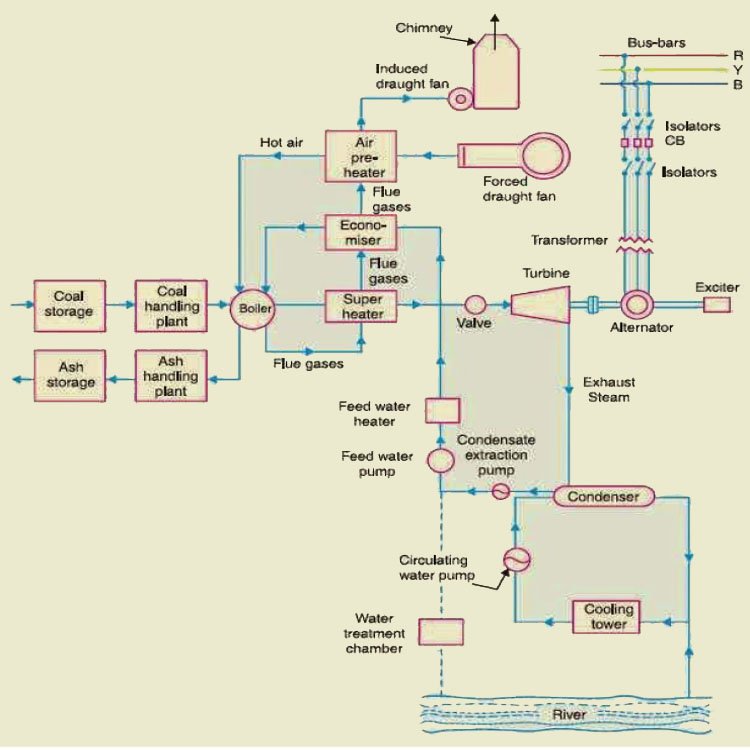
What is Thermal Power Plant? Layout, Working and Operation
A thermal power plant, also known as a thermal power station, is used to transform heat energy into electric power for domestic and industrial applications. Electric power is generated by steam-powered turbines, which convert heat to mechanical power. So let's understand the basics of a thermal power plant.
.jpg)
Conventional Sources of Energy Definition, Types, Examples Teachoo
A thermal power plant is a power generation station that converts the heat energy produced by the combustion of fuel into electric energy. The heat energy of the fuel is used to convert water into steam at high pressure. This high-pressure steam is passed over the turbine.

CAD / CAM Plastic And Acrylic Thermal Power Plant Layout Model ID 25558285212
Fossil fuels are mainly used in thermal power plants to generate electricity, especially coal, which accounts for 76% of the electricity generated in the country.According to the ministry, coal production in 2021 will increase by 6% compared to 2020.India's total thermal power generation capacity as of January 2021 is 231,870.72 MW.. Layout of Coal-Based Power Plant:- The layout of the steam.
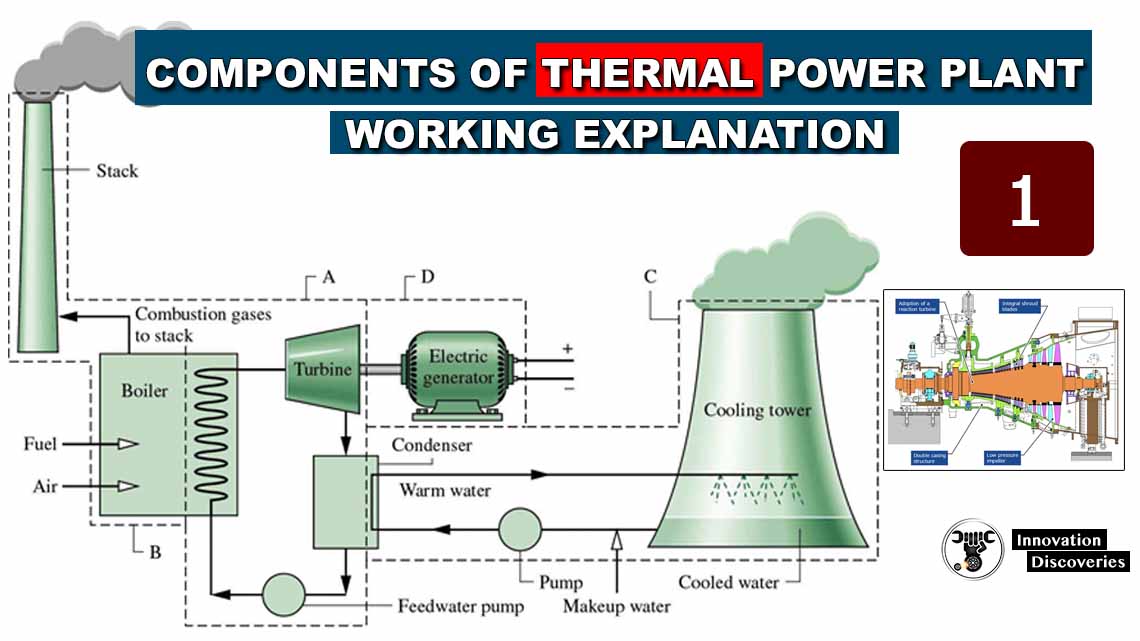
Components of Thermal Power Plant & Working Explanation
This is known as ranking cycle. This article explains how electricity is generated in thermal power plants. As majority of thermal power plants use coal as their primary fuel, this article is focused on a coal fired thermal power plant. Typical layout and working of a Thermal Power Plant
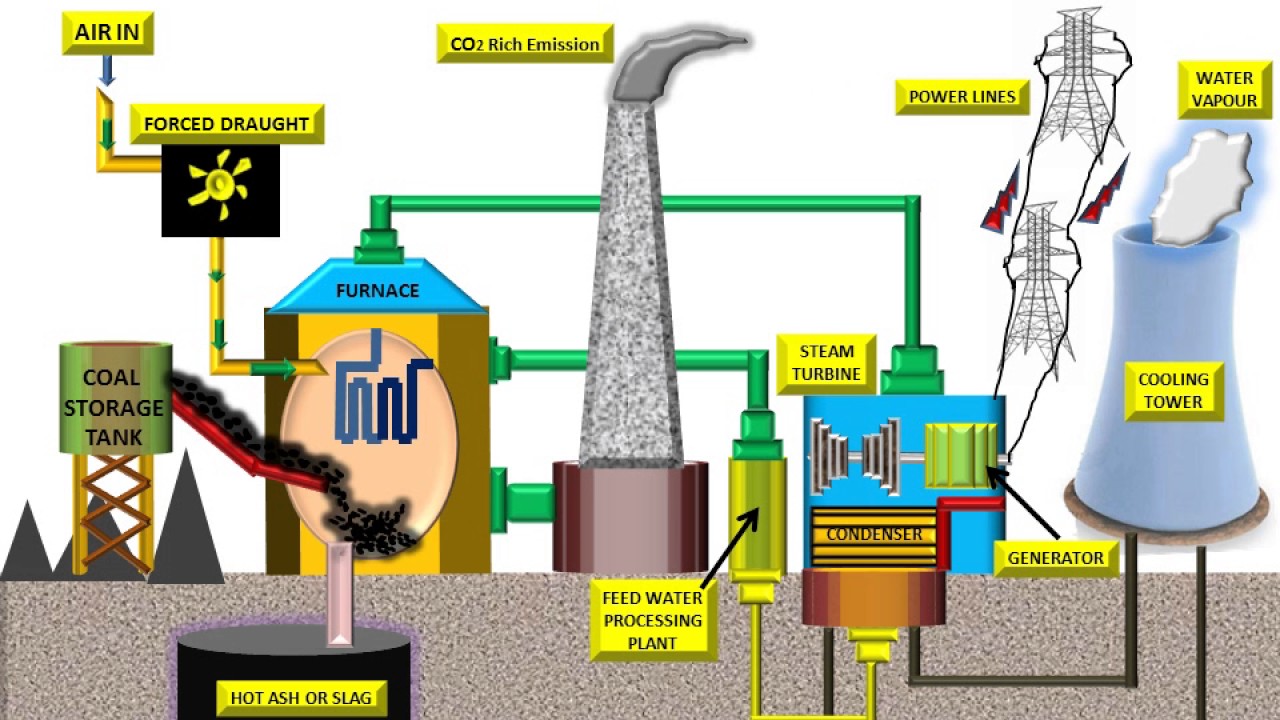
Thermal Power Plant What is thermal power plant ,and working of thermal power plant
Thermal Power Plant Layout Steam power plant simply involves the conversion of heat energy into electrical energy. The method of arrangement can be divided into the following stages, Coal and ash handling arrangement Thermal power generation Generating plant Steam turbine Alternator Feed water Cooling arrangement Coal and Ash Handling Plant

How Thermal Power Plant Works? Layout, Working, Types & More
Thermal power station's working principle is "Heat released by burning fuel which produces (working fluid) (steam) from water. Generated steam runs the turbine coupled to a generator which produces electrical energy in Thermal Power Plants. Major components of a Thermal Power Plant General layout of Thermal Power Plant:
Thermal Power Plant Components & Working Principles Thermodyne Boilers
Table of Contents What is a Thermal Power Plant? Working of Thermal Power Plant Components of Thermal Power Plant Site Selection of Thermal Power Plant Efficiency of Thermal Power Plant Advantages & Disadvantages of Thermal Power Plant What is a Thermal Power Plant? According to energy conservation law, energy is neither created nor destroyed.
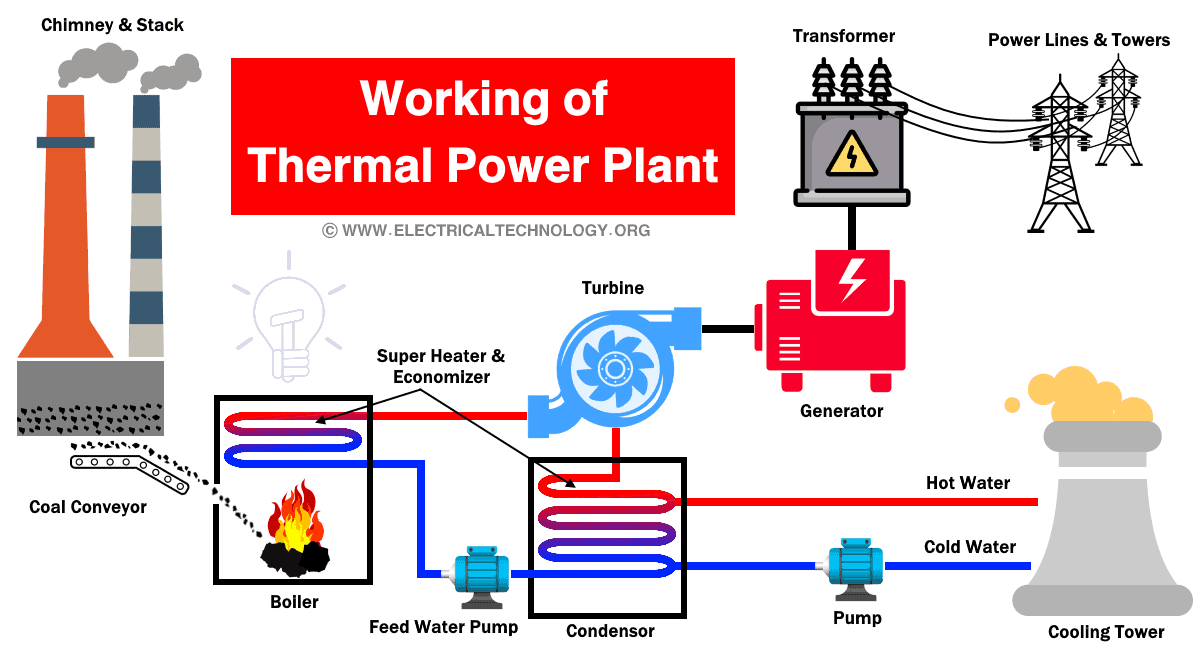
Thermal Power Plant Components, Working and Site Selection
Thermal Power Plant. In the 18 th century, the Thermal Power Plant exists with a lot of improvements in the reciprocating steam engine (This reciprocating steam engine is used to develop the steam and with the use of an electric generator produces the electricity).In the year about 1905, the turbines entirely replaced reciprocating engines in large central power stations and continues the.

Basic Layout and Working of a Thermal Power Plant
The thermal power plant, also known as a thermal power station, is used to convert heat energy into electricity for residential and commercial usage. Steam-operated turbines turn heat into mechanical power, which is then converted into electric power in the electric power production process.

Introduction to thermal power plant
Basic Layout of Thermal Power Plant Components of Thermal Power Plant (1). Coal Storage and Pulverizer: (2). Water Boiler: (3). Steam Turbine: (4). Condenser : (4). Alternator: (6). Feed Water Pump: (7). Chimney: Working of Thermal Power Plant Advantages of Thermal Power Plant Disadvantages of Thermal Power Plant Conclusion

Solar thermal power plant layout component isometr
1.4 General Layout of Modern Thermal Power Plant The general layout of the thermal power plant consists of mainly 4 circuits as shown in Fig. The four main circuits are: 1) Coal and ash handling circuit: In this circuit ,the coal from the storage is fed to the boiler through coal handling equipment for the generation of steam.
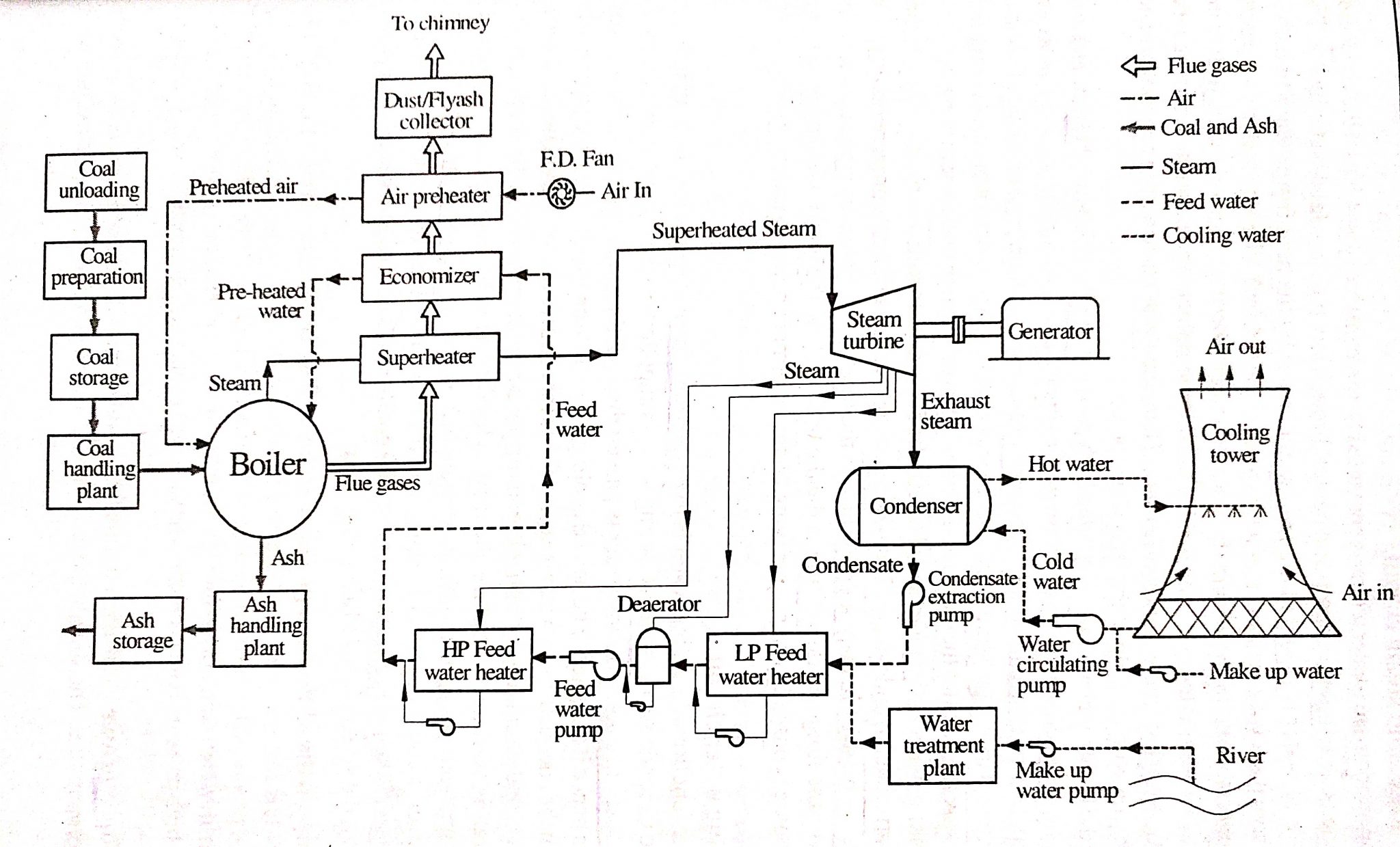
General Diagram Thermal Power Plant, Main Components Melezy
The overall efficiency of the power plant is defined as the ratio of heat equivalent of electrical output to the heat of combustion (about 29%). The losses that occurred in the thermal power plant at various stages are as follows. Boiler House Losses: (a) To dry flue gases 5%. (b) To moisture in gases 5%.

Typical layout of CFBC based thermal power plant. Download Scientific Diagram
A thermal power plant is a facility that transforms thermal energy into electrical energy. Thermal energy usually comes from burning fuel, but there are also thermal power plants that can operate on geothermal and solar energy.